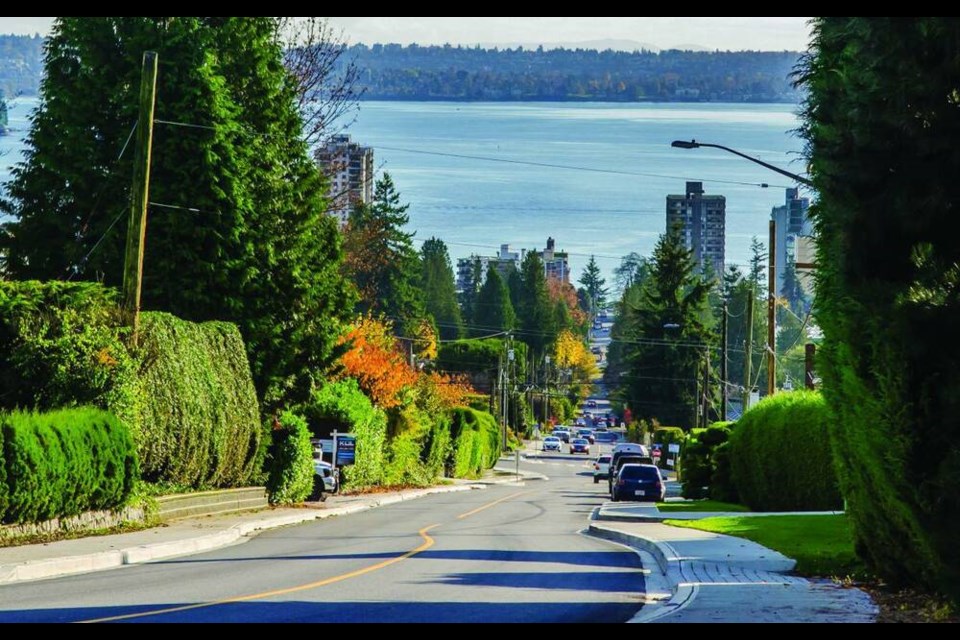Many of the streetlights on the North Shore are glowing with a more energy-efficient hue, as a provincewide plan to replace old bulbs enters its final phase.
In the City of North Vancouver, and the districts of West Vancouver and North Vancouver, many of the posts lighting the road have been switched to LEDs, from ballasts containing poly-chlorinated biphenyls.
The wave of mass replacement is being carried out by municipal governments and BC Hydro, which are responsible for different sets of streetlights. In most cases, BC Hydro maintains lights on wooden poles, and governments take care of metal ones.
The bulbs are being replaced to comply with new federal regulations that require PCBs to be removed by the end of 2025. PCB lights contain harmful chemicals, and require more power and maintenance than LEDs.
Officials say the new streetlights will improve public safety while lessening luminous nuisance. Replacing them is said to have minimal impacts on residents and businesses.
“LED streetlights are designed to focus light downward towards the road and sidewalk, where it is needed and limits light shining upwards or into nearby properties,” reads a statement from District of West Vancouver. “Because of this, nighttime visibility of roads and sidewalks will improve while also reducing light pollution.”
According to West Van municipal staff, all the district-maintained poles were switched to LEDs by the end of 2020. BC Hydro began work on its 1,000 poles in West Van at the beginning of this summer, and is supposed to finish within the next month.
The City of North Vancouver said all city-owned street-lighting fixtures were outfitted with LEDs by the end of August, while BC Hydro has also finished replacing its PCB lights in the city.
In the District of North Vancouver, most of the metal streetlights have been converted and work is underway to replace ones maintained by BC Hydro.
In general, a warmer white light option is installed in residential neighbourhoods or environmentally sensitive areas, and neutral white in commercial or non-residential roadways.




